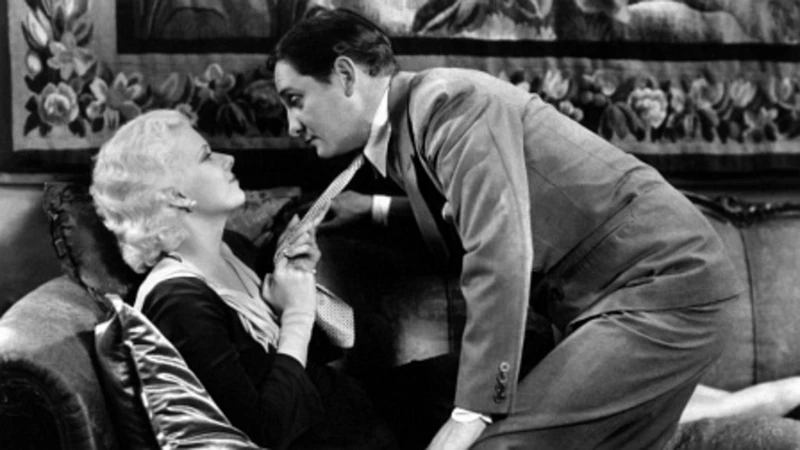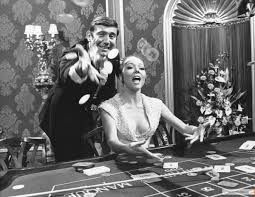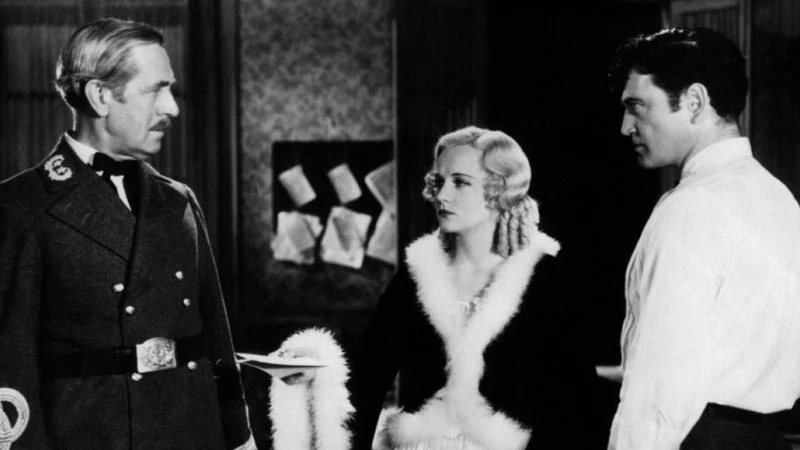🎬 Secret Service (1931)

Secret Service (1931) Review: A Tense Civil War Spy Drama
Secret Service, directed by J. Walter Ruben, is a film adaptation of William Gillette’s acclaimed 1895 stage play of the same name. Set during the American Civil War, the film weaves a tale of espionage, loyalty, and sacrifice as a Union officer infiltrates Confederate ranks to carry out a dangerous mission. With its tight storytelling, tense atmosphere, and heartfelt performances, Secret Service offers a compelling glimpse into the moral complexities of war.
Plot Overview: A Mission of Espionage and Deception
The story revolves around Captain Thorne (Richard Dix), a Union officer assigned to pose as a Confederate officer behind enemy lines. His mission is to disrupt the South’s communication by intercepting a critical telegraph message. Thorne’s dedication to his duty is tested as he becomes entangled with Edith Varney (Shirley Grey), the daughter of a Southern aristocratic family who harbors romantic feelings for him.
As tensions rise, Thorne must navigate a treacherous web of suspicions, betrayals, and personal conflicts, all while staying true to his mission. The film’s climactic moments reveal the human cost of war and the sacrifices demanded by loyalty to one’s cause.
Richard Dix as Captain Thorne: A Charismatic Spy
Richard Dix delivers a strong performance as Captain Thorne, portraying the character with a mix of stoicism, charm, and internal conflict. His portrayal captures the tension between Thorne’s commitment to his mission and his growing affection for Edith, creating a layered and compelling protagonist. Dix’s ability to convey both confidence and vulnerability elevates the film’s emotional stakes.
Shirley Grey as Edith Varney: A Heartfelt Performance
Shirley Grey brings warmth and depth to the role of Edith Varney, a woman torn between her loyalty to the Confederate cause and her feelings for Thorne. Grey’s performance highlights Edith’s naivety and strength, making her a sympathetic and relatable character. Her chemistry with Dix adds an emotional dimension to the story, making their interactions a highlight of the film.
Supporting Cast: Adding Intrigue and Tension
- Nance O’Neil as Mrs. Varney: O’Neil’s portrayal of Edith’s mother adds gravitas to the film, embodying the pride and resilience of the Southern elite.
- Gavin Gordon as Lieutenant Maxwell: Gordon’s performance as a Confederate officer suspicious of Thorne provides a key source of tension, driving much of the film’s suspense.
- Martha Mattox as Caroline: Mattox’s role as a loyal family servant adds subtle commentary on class and loyalty during wartime.
Themes: Loyalty, Deception, and the Human Cost of War
- Moral Ambiguity: The film explores the ethical dilemmas faced by spies, highlighting the tension between duty and personal integrity.
- Sacrifice for a Greater Cause: Captain Thorne’s willingness to risk everything for the Union underscores the sacrifices demanded by war.
- The Personal Toll of Conflict: The story delves into the emotional impact of war on individuals, particularly those caught between opposing loyalties.
Direction and Cinematography: Stage-to-Screen Transition
Director J. Walter Ruben successfully adapts the stage play for the screen, retaining its intense, character-driven focus. The film’s visual style emphasizes close-ups and confined spaces, reflecting its theatrical origins while adding cinematic flair. The use of shadowy lighting and period-accurate set design enhances the film’s atmosphere, immersing viewers in the Civil War era.
Pacing and Tension: A Steady Build-Up
At just 71 minutes, Secret Service maintains a tight and engaging pace. The film steadily builds tension as Thorne’s deception risks exposure, culminating in a suspenseful and emotionally charged climax. The interplay of personal relationships and high-stakes espionage keeps viewers invested throughout.
Strengths of Secret Service
- Engaging Performances: Richard Dix and Shirley Grey deliver standout performances that anchor the film’s emotional and narrative core.
- Tense Atmosphere: The film’s focus on espionage creates an underlying sense of danger and intrigue.
- Timeless Themes: The exploration of loyalty, sacrifice, and moral ambiguity resonates beyond its historical setting.
Weaknesses of Secret Service
- Theatrical Origins: The film’s stage roots are evident in its dialogue-heavy scenes and limited use of outdoor locations.
- Underdeveloped Side Characters: While the leads are well-defined, some supporting characters feel one-dimensional.
- Simplistic Portrayal of Conflict: The film simplifies the complexities of the Civil War, focusing more on personal drama than broader historical context.
Legacy and Reception
Though not as widely remembered as other films of its era, Secret Service is a notable adaptation of a celebrated stage play and a solid entry in the spy drama genre. Its themes of loyalty and sacrifice continue to resonate, and its performances, particularly by Richard Dix, have earned it a place in classic cinema.
Fun Facts About Secret Service
- Stage Play Roots: The film is based on William Gillette’s 1895 play, which was a significant success in its time and influenced early spy dramas.
- Historical Accuracy: While dramatized, the film captures the essence of Civil War-era espionage tactics.
- Early Sound Cinema: As a product of the early talkie era, the film reflects the transition from silent to sound filmmaking, with an emphasis on dialogue and performance.

Conclusion: A Gripping Civil War Spy Drama
Secret Service (1931) is a taut and engaging film that captures the tension and moral complexity of wartime espionage. With strong performances from Richard Dix and Shirley Grey, it delivers a compelling narrative that balances personal drama with high-stakes intrigue. While its theatrical origins and simplified approach to history may limit its appeal to some, it remains a worthwhile watch for fans of classic cinema and Civil War stories.